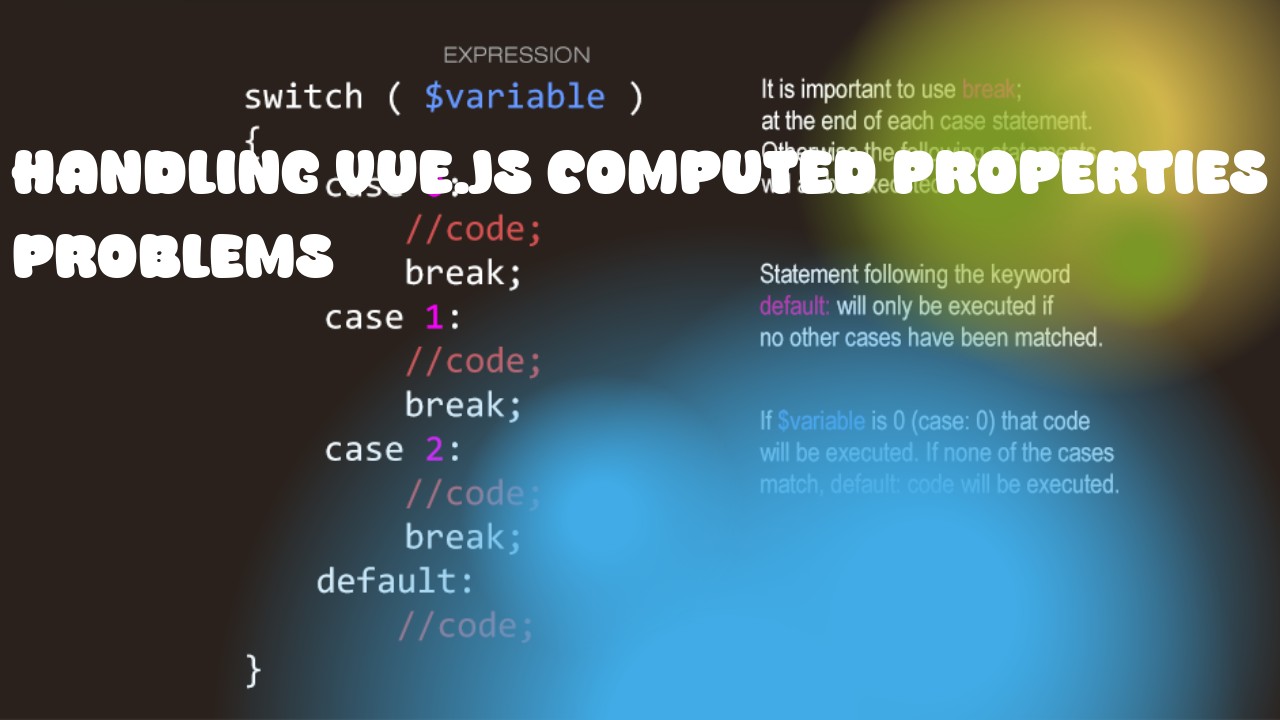Vue.js is a popular JavaScript framework for building single-page applications (SPAs). One of its powerful features is the use of computed properties, which allow you to define reactive functions that return values based on other data in your application.
However, like any feature, it can have problems too. In this article, we'll explore some common problems with Vue.js computed properties and how to solve them:
- Unnecessary Computed Properties Unlike methods, which are only run when called, computed properties get recalculated whenever their dependencies change. If you define a computed property that does not depend on any data in your application, it will be recomputed every time something changes. This can lead to unnecessary computation and slow down your app performance.
To solve this problem, make sure that your computed property is dependent on some data in your application. If it's not, consider changing it to a method instead.
- Computed Properties That Return Lists or Objects Computed properties can also return lists or objects. However, if you use the spread operator to merge multiple arrays or objects into one, Vue.js will treat this as a new object or array every time it changes, even if the values inside haven't changed.
To solve this problem, consider using the deep option in the watch property:
watch: {
'$props': {
handler(newProps) {
// Update your computed property
},
deep: true
}
}
This tells Vue.js to treat this object or array as a single entity, so it won't be recalculated unless the entire object or array changes.
- Computed Properties with Side Effects Computed properties can have side effects, such as making an API call. If you define a computed property that calls an API, Vue.js will treat this as a reactive function and recalculate it every time something changes in your application.
To solve this problem, consider using a watch property instead of a computed property:
data() {
return {
items: []
}
},
watch: {
'$props': {
handler(newProps) {
this.fetchItems()
},
deep: true
}
},
methods: {
async fetchItems() {
// Make an API call and update the items data
}
}
This tells Vue.js to run this method every time any property in your application changes, instead of treating it as a reactive function that only needs to be calculated when its dependencies change.

